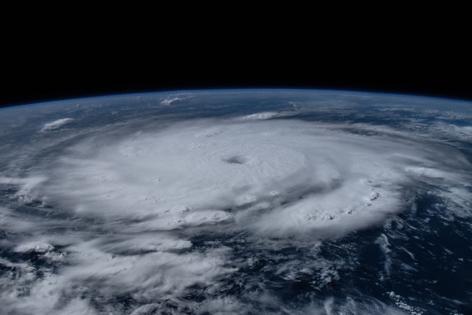We've never seen a storm like Beryl. What the Cat 5 hurricane says about a warmer future
Published in News & Features
MIAMI— Earliest Category 5 in the Atlantic. Earliest Category 4. Strongest June hurricane. Easternmost June hurricane. First system to undergo rapid intensification in the Atlantic in June. All fresh rewrites of a hurricane record book began in 1851.
Beryl, only the second named storm of 2024, is an eye-opening start to what forecasters had predicted could be one of the busiest — and scariest — hurricane seasons ever. The next few months are historically more active. And, for the second year in a row, the hurricane breeding grounds of the Atlantic Ocean, Caribbean Sea and Gulf of Mexico all contain the super fuel of hurricane engines — extremely hot ocean water.
For hurricane experts, Beryl’s historic rapid-fire development is both an extreme example of the sort of monster storms that can be produced under current climate conditions — and a signal of what may be in store more often if global and ocean warming trends continue.
“This is an outlier by any stretch,” said David Zierdan, Florida’s state climatologist. “And that doesn’t mean it’s the new normal, that it’s going to happen every year. But is climate change playing a role? I’m sure it is.”
Climate connection
Scientists are still sussing out all the complicated ways that climate change affects hurricanes and they stress that no one storm, even a record-breaker like Beryl, can be blamed on ongoing climate shifts alone. There have been even more powerful storms in the past, of course — just not so early in the season.
But they are most confident in a few specific changes already being observed in hurricanes: Higher sea levels lead to more storm surge and rain with hurricanes, hotter ocean water means storms have the opportunity to get stronger and warmer seas also increase the chances a storm will rapidly intensify.
And, right now, the Atlantic, and the Caribbean, are hotter than any other time in the record books for the second year in a row. Scientists say that’s likely due to a number of factors, including a volcanic explosion that shot water vapor into the atmosphere, weaker trade winds across the Atlantic and — bizarrely — a successful effort to reduce air pollution by ships crossing the Atlantic.
But the biggest slice of the pie, Zierdan said, is the well-documented impacts of climate change.
The other inputs are “very minor compared to the main culprit, which is greenhouse gases and the general warming of the planet,” he said.
...continued
©2024 Miami Herald. Visit at miamiherald.com. Distributed by Tribune Content Agency, LLC.







Comments